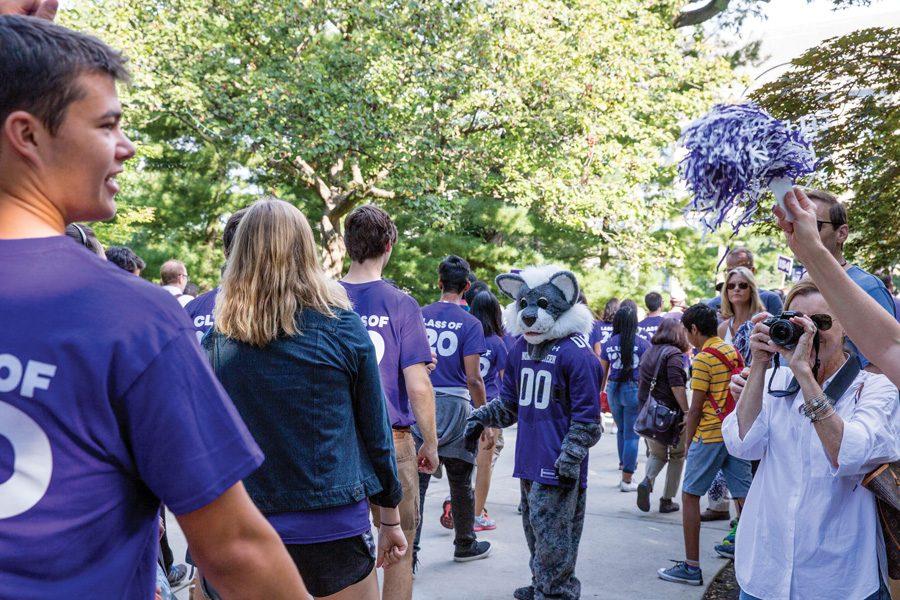New humanities, social sciences pre-orientation program to come this summer
Daily file photo by Zack Laurence
Freshmen participate in March Through the Arch during Wildcat Welcome 2016. A new pre-orientation program aimed at preparing students for the humanities and social sciences will launch this summer.
February 22, 2017
Northwestern will offer a new pre-orientation program this summer for incoming freshmen that will focus on critical thinking in social sciences or the humanities, said Lane Fenrich, assistant dean for first-year students and transition programs.
The new offerings expand the Bridge program, which aim to help first-generation students and students from high schools with limited access to Advanced Placement courses prepare for challenging gateway classes such as economics and chemistry, according to the program’s website. The program will launch a more diverse curriculum focusing on critical thinking this summer with courses on literature, journalism and history.
The new programs will mirror the structure of the original courses for chemistry and economics, but students will focus on critical thinking skills, a move from the qualitative reasoning focus of past programs, Fenrich said.
“It was just our sense that there was something else we could be doing that would get more students on campus,” Fenrich said. “(The qualitative reasoning course) was only serving one side of students. We wanted something that conceivably any incoming student could participate in.”
Rising freshmen in the new program will spend the first two weeks of the four-week program in a “Critical Thinking” course taught by English Prof. Jules Law. Although the curriculum is still currently being developed, the aim of the critical thinking portion of the program is to give an overview of humanities and social science based disciplines and learn about how to analyze and structure arguments, Law said.
Students will be exposed to “exemplary” essays from four or five key humanities disciplines such as literary studies, art history and anthropology, Law said. The exact disciplines have not yet been determined, he said.
“Sociologists approach things a little bit differently from a literary critic, a literary critic a little bit differently from an art historian,” Law said. “(This course) will be of the nature of a survey, looking at the differences amongst various humanities fields, and at the same time an attempt to kind of synthesize what are the common denominators to those.”
Following the critical thinking course, the students will split off into either a Weinberg or Medill track depending on their school. The Weinberg track, taught by history Prof. Geraldo Cadava, will focus on humanities, social science research and writing; in the Medill track, journalism Prof. Sarahmaria Gomez will teach basic journalism skills, Fenrich said.
The theme for the four-week long program is “Crossing Borders,” and will explore the various ways both ideas and people traverse boundaries, Law said.
“When we talk about crossing borders, especially in the context of what’s going on today, we think about people crossing borders… but in fact, almost anything can cross a border,” Law said. “We want to look at the humanities as a kind of broad set of disciplines that look at the question of what it means and under what conditions and what reasons things cross borders.”
Fenrich said data and feedback on the Bridge programs collected by the administration showed that people who are on campus before orientation have a better experience during Wildcat Welcome and during their first year, he added.
Fenrich told The Daily that instead of teaching students introductory humanities material, the course will teach critical thinking skills that will apply across classes.
“(This course) is teaching them how to identify what questions are actually being asked and how is an argument being composed,” Fenrich said. “Those are skills that will transfer across classrooms, and that’s our goal.”
This story and headline were updated to clarify the interdisciplinary nature of the program.
Email: [email protected]
Twitter: @madeleinemelody


